
“I think there is an incorrect assumption by a lot of cisgender and heterosexual people that the passage of time alone equals progress, when in fact it is the direct actions, the protesting and speaking out of LGBTQ+ people which has led to change.” These are the words of Oscar. On Saturday 9 July 2022, he and thousands of other trans people and allies marched through London for London Trans Pride.
“We will not live better lives without fighting for them,” Chris, another marcher, agrees. They are joining London Trans Pride all the way from Germany. “Trans pride means to me to feel trans joy because we’re many, and we’re here to stay.”
The annual march has a lot to respond to this year. “In recent months the Equality and Human Rights Commission (EHRC) has dramatically shifted its position on trans rights, suddenly requesting the Scottish government pause its reforms to the Gender Recognition Act (GRA), as well as arguing the UK government should delay reforms to conversion therapy for trans and intersex people,” a spokesperson for London Trans+ Pride said.
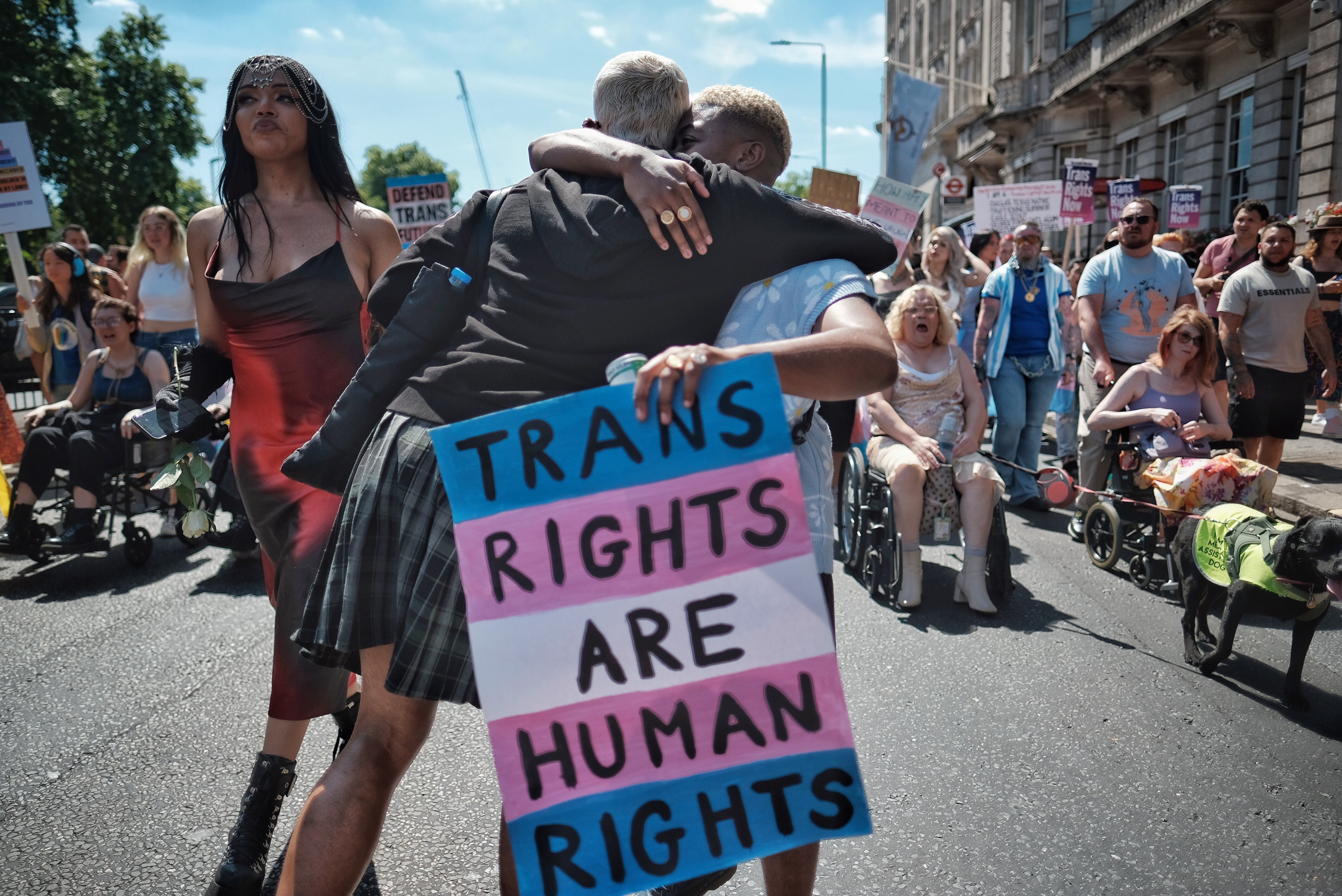
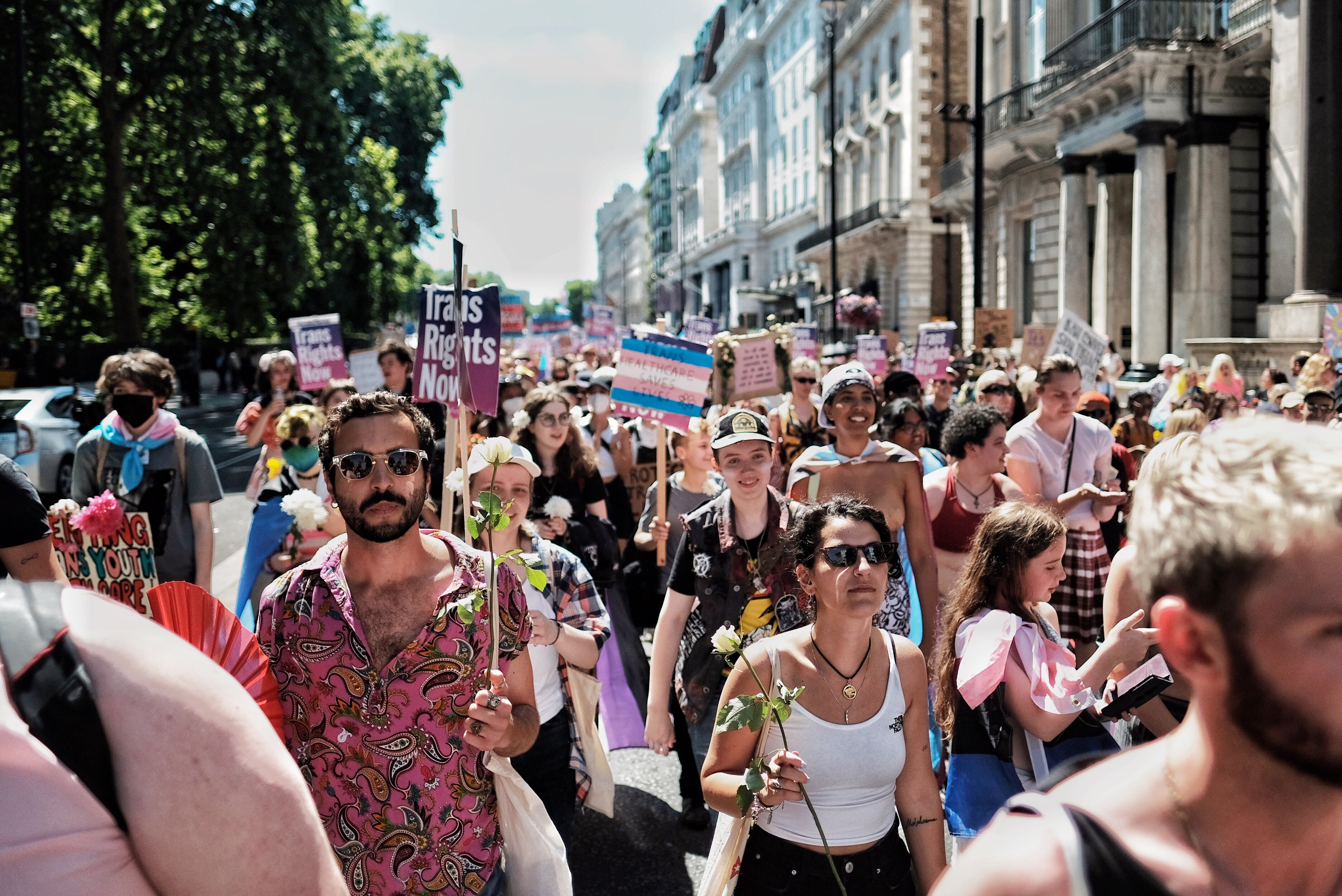
“On Trans Day of Visibility the UK government announced it would move ahead with banning conversion therapy for homosexuals, but not for trans people: the irony is not lost on us, this is an abhorrent and deliberate attack… The EHRC is actively damaging human rights for trans people. We deserve better: London Trans Pride is calling for the EHRC to be abolished. We march to demand the legal recognition of non-binary, intersex and gender nonconforming people,” the London Trans+ Pride spokesperson said.
Oscar’s protest sign reads: not safe to be me. “That is truly how I feel at the moment,” Oscar says, “particularly as the government has seemingly decided not to include transgender people in their ban on conversion therapy,” he shares. “It baffles me that in 2022 anyone should think it would be acceptable to subject someone to conversion practices, all because they are trans."
I speak to Lorraine, a 30-year-old trans woman. “This is actually going to be my first pride march,” Lorraine says. “After feeling more and more worried about being trans in the UK over the last few years, I want to show those outside the trans community that there’s nothing to be afraid of, nothing to be worried about, and that we’re not actually the monsters some make us out to be.”
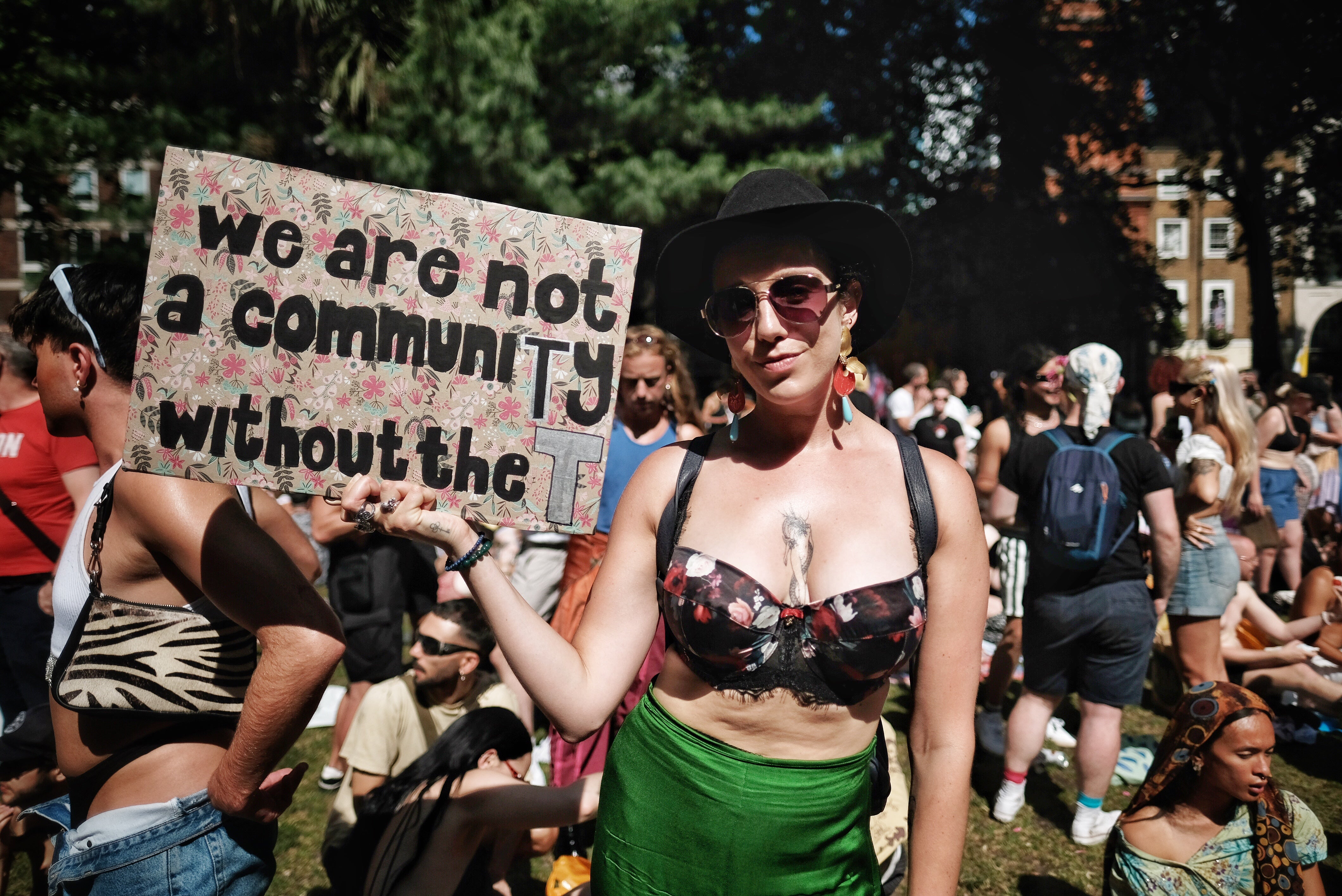
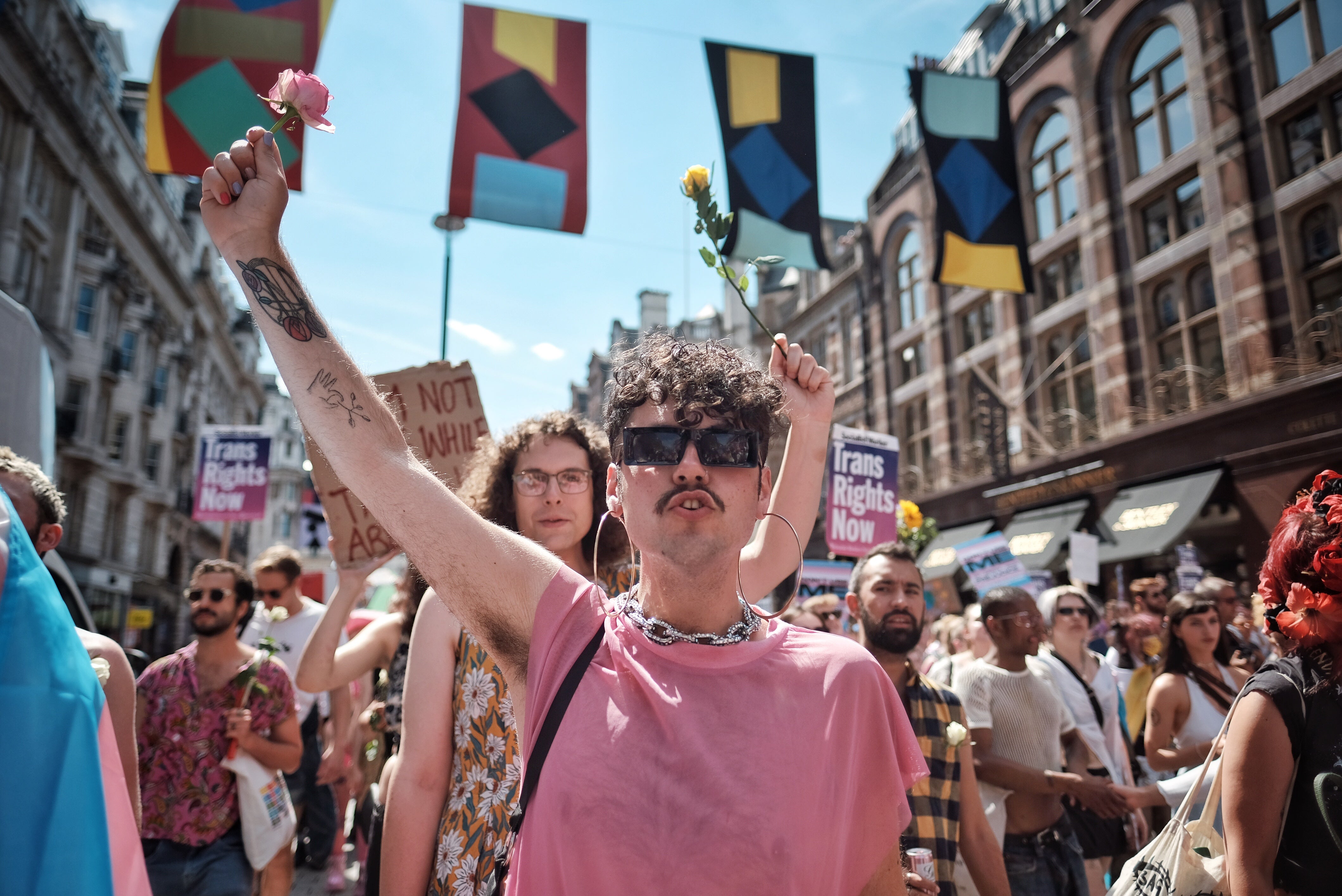
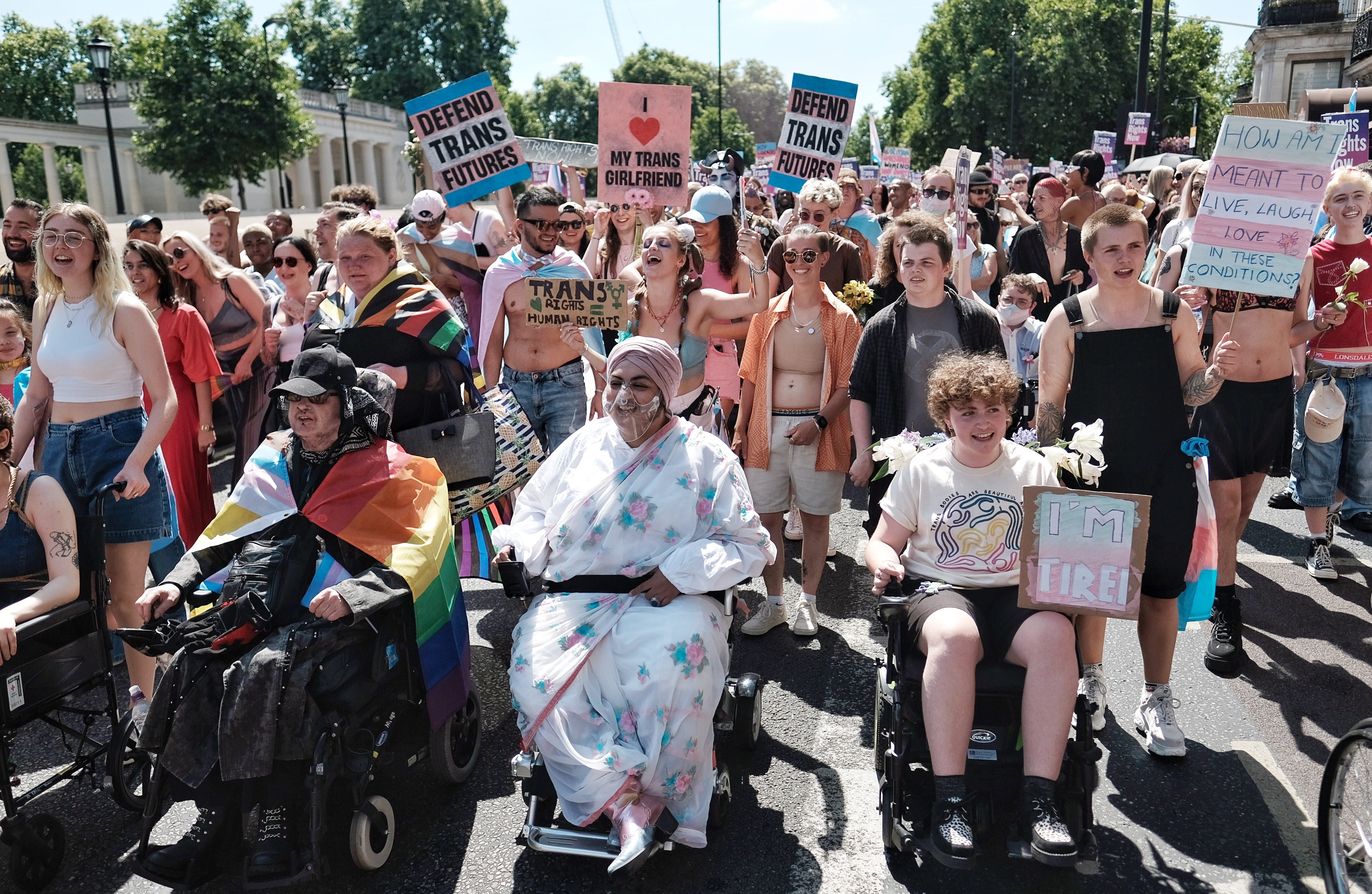
Lorraine is referring to anti-trans campaigners, who are the reason for much of the government’s failure to recognise transgender rights. Anti-trans campaigning in the UK is predominantly led by small groups calling themselves “gender critical feminists”, mostly made up of cisgender people.
Oscar’s partner, Ellie, is a cisgender woman who is marching to support Oscar and other trans loved ones, and to show her solidarity against anti-trans groups. “As the cis partner of a transgender man, it’s shocking to see how people discuss transgender people, particularly trans women. That there are multiple groups founded on prejudice against them is deeply wrong and should be directly challenged at every opportunity – these people do not speak for me or any of the other women in my life,” Ellie says.
“My life is all the richer for the transgender people in it, not just my partner Oscar but my friends, peers and others who I look up to,” she says.
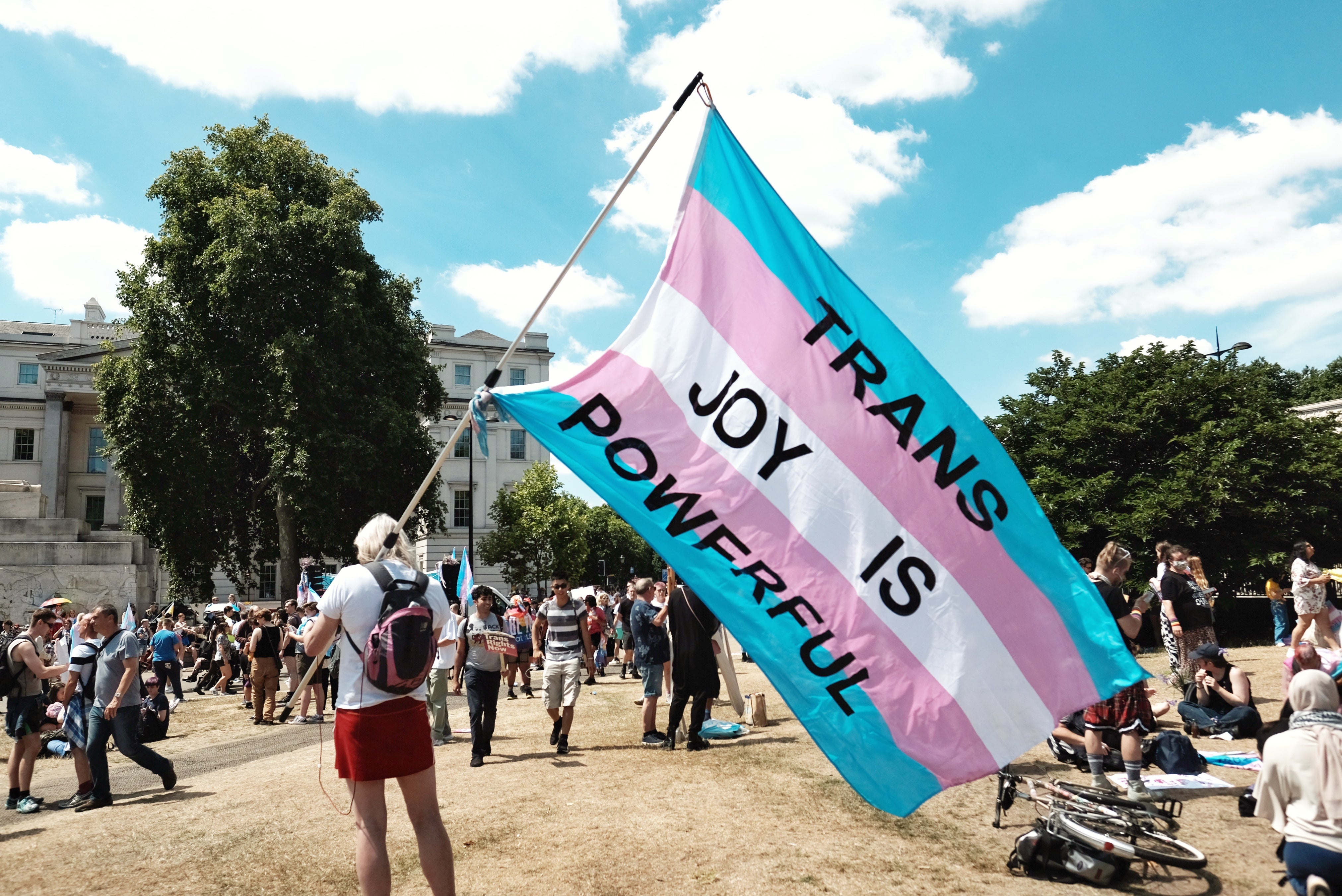
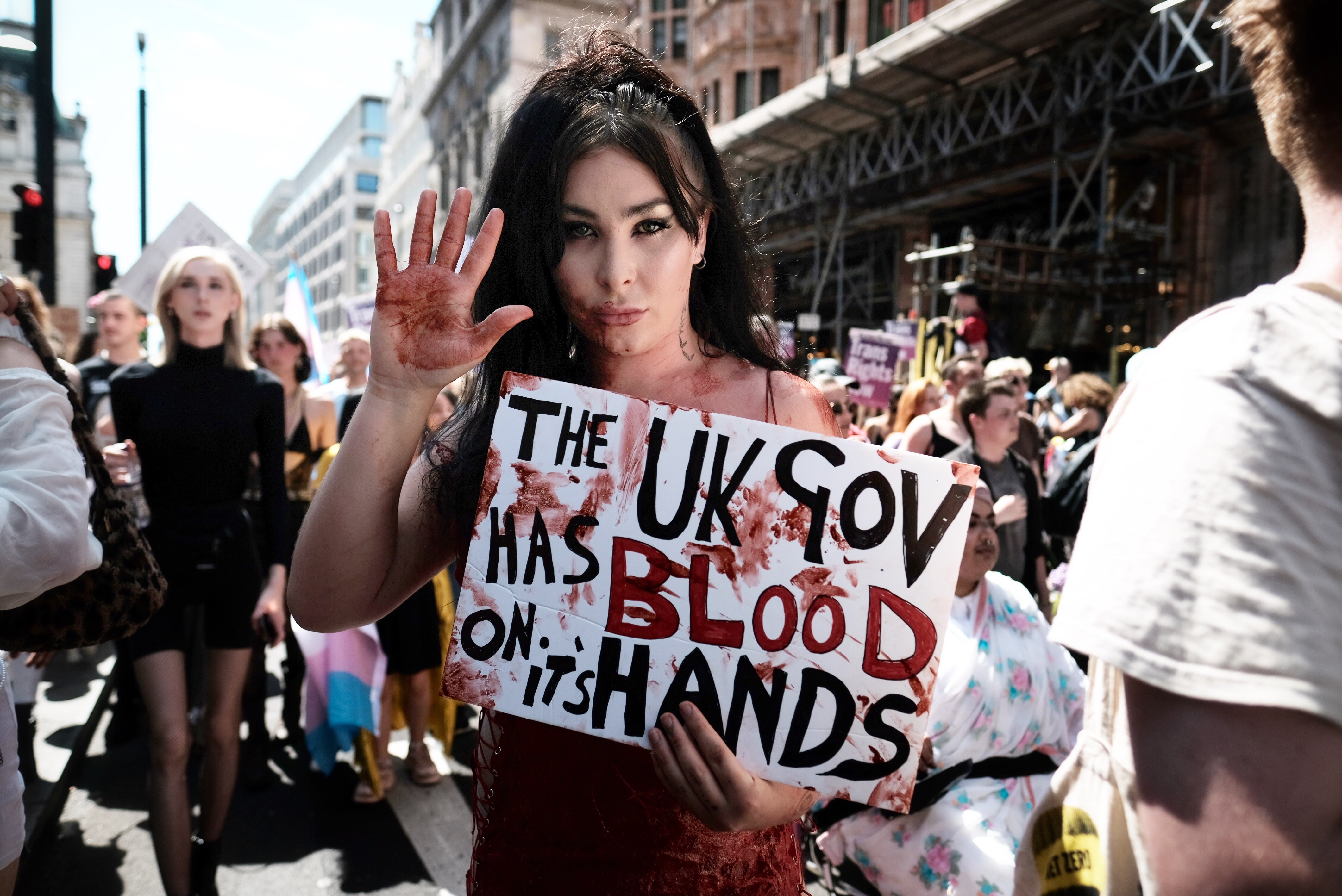
There is a theme of solidarity at the march, responding to the hostility trans people are facing. “Since coming out, marching is something I have wanted to do to show solidarity and support for those who can’t or don’t wish to be out openly at this time, and solidarity and support for those who do”, says Lorraine.
Oscar feels similarly. “It’s important to me to be visibly part of the trans community, and to proclaim in public that I am proud to be trans,” he says.
“It’s about sharing knowledge, pain, joy. It’s about celebrating and seeing each other and feeling seen and celebrated,” says Chris. “It’s to be visible and to care for each other in this visibility – as we also do in our everyday lives. It’s also about creating a space for sharing emotions and experiences and acknowledging different perspectives within the trans community that go beyond my own experience.”
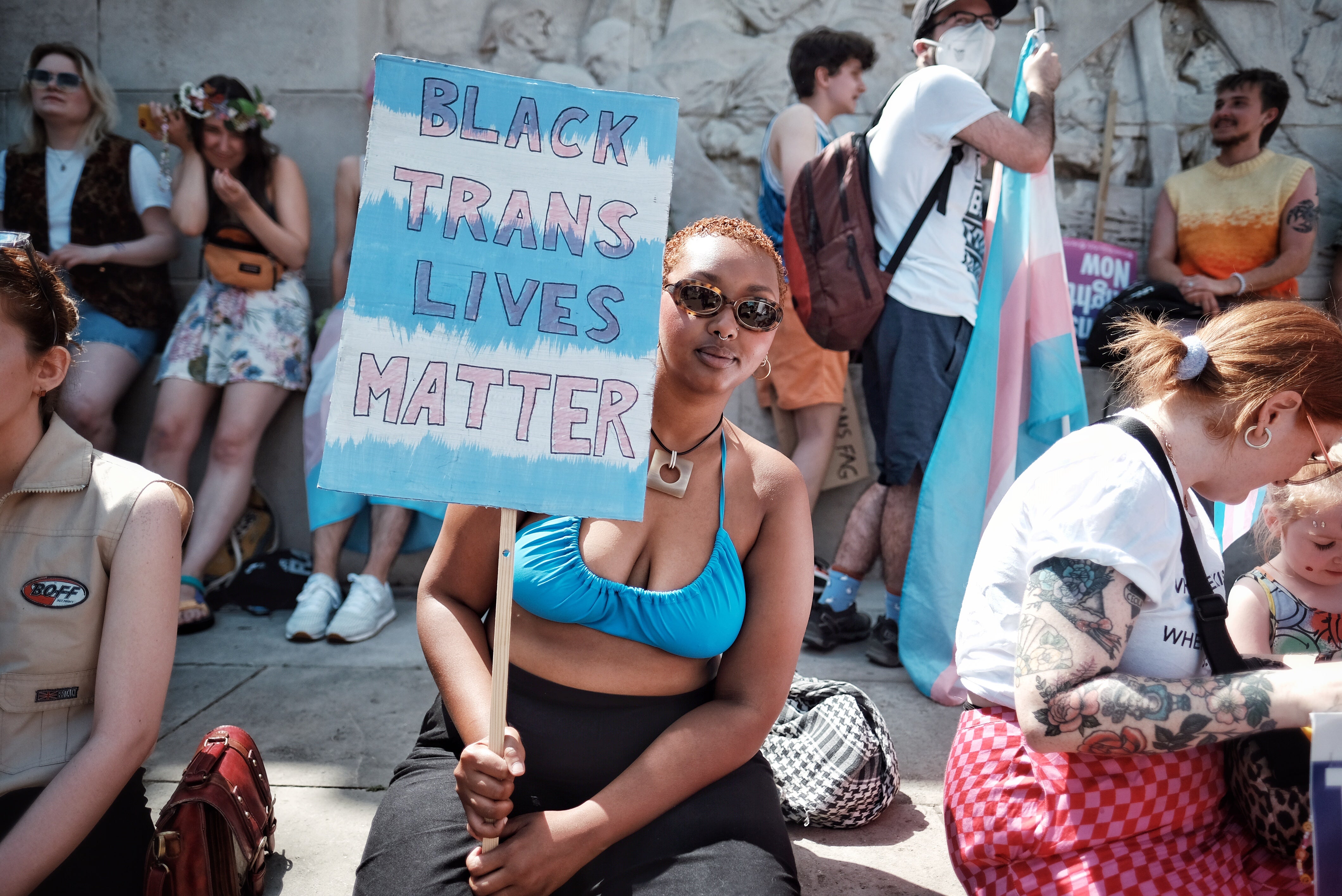
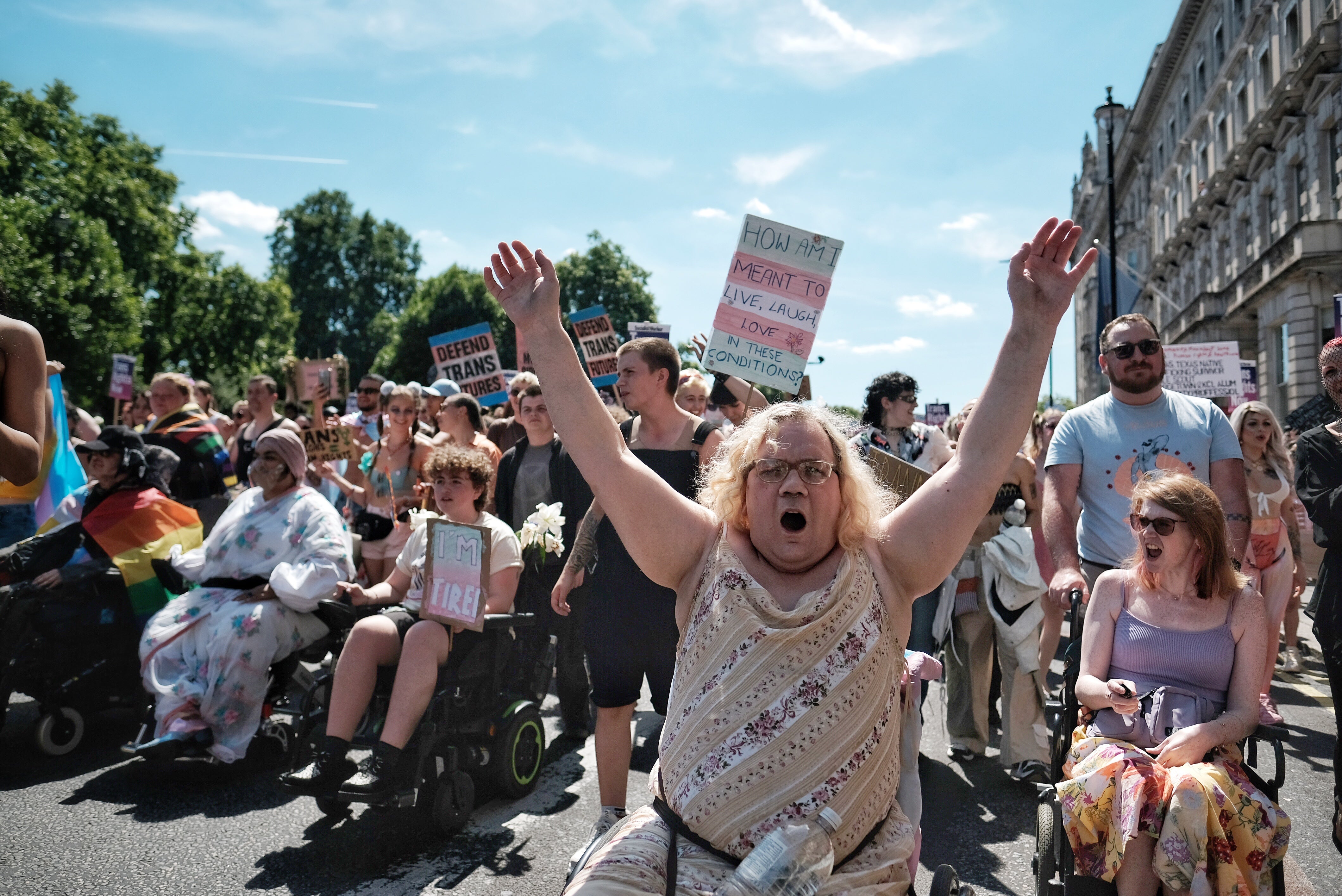
This year, London Trans+ Pride wish to “Celebrate the memory of trans lives taken and uphold the next generation of trans revolutionaries.”
“Pride started as a riot and we should not forget how much we owe to trans elders of colour like Sylvia Rivera and Marsha P. Johnson who took the streets before us and stood up against violence, also within the lesbian and gay movement,” says Chris.
“We will fight for justice – until not one of us gets incarcerated anymore, gets denied free access to good healthcare, and care generally, gets denied good nourishing housing, gets harassed and violated in the streets. Because we’re human beings and another world is possible.” Chris says. “We are unstoppable. I want more than rights, I want liberation and justice.”







